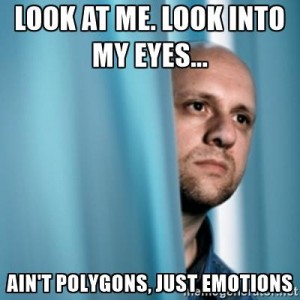On April 4th the Shaw Mind Foundation launched a campaign, titled HeadeducationUK, to make mental health education compulsory within every school in the UK. You can support their campaign and sign their petition here.

Recognising symptoms of mental ill health can be difficult. It is not possible to draw a clear line between ‘ill’ and ‘well’, and individuals generally fluctuate along a spectrum between the two. Unlike with other forms of ill health, you can’t just go for a scan or take a blood test to identify the problem. Individuals often suffer for a long time before seeking help, during which time they might not even be aware that their emotions or experiences could be indicative of a mental health problem. Similarly, it can be difficult for individuals to reach out to their support networks, with no guarantee of receiving well-informed advice from those around them.
So, while research suggests that 1 in 6 people in the past week will have experienced a common mental health problem in England, and 1 in 10 children in London suffer from significant mental ill health at any given time, these figures do not necessarily account for the wider number of individuals who manage their symptoms alone, without seeking help, and who may not know that their symptoms are clinically relevant and common.
Adolescents are especially vulnerable to falling into this category. Adolescence is characterised by significant emotional and physical development, occuring alongside the social pressures of ‘fitting in’ with a peer group and forging a personal identity. Symptoms of mental health problems are common during this unstable period, and young people may be reluctant to seek help. Crucially, the process of seeking help relies upon an ability to recognise the symptoms. Since 50% of individuals with a lifetime mental illness (excluding dementia) will experience symptoms by age 14, it is incredibly important to be open with young people about the range of mental health problems that exist, who they effect, what they feel like, how to seek support – and the range of tried and tested strategies, therapies, and treatments that can work for those in need.
An obvious way to equip all individuals across the country with a baseline awareness of mental health is to include it in the school curriculum.
At the moment, ‘Health and Wellbeing’ is included within the non-compulsory guidelines for personal, social, health and economic (PSHE) education. The government states that mental health should be an everyday concern in all institutions, but that it is at the discretion of the school to develop their own curriculum to reflect the needs of their pupils. However, as long as the majority of schools in the UK are preoccupied with preparing for the national curriculum assessments or exams, and concerned about their positions in league tables, there may little time for teachers to develop and assert their own curriculum. This is reflected in what most of us will remember of PSHE lessons…
I would argue that all pupils will at some point need to understand what it means to be mentally unwell – if not directly for themselves, then indirectly for the other people in their lives. I would argue that this understanding is just as important, if not more so, than other content currently covered in the national curriculum (and just to check that I really mean this, I had a quick look at the National Curriculum for England and can confirm that I think children being able to distinguish between their own emotions, or identify a friend in need, is of at least equal importance to them honing their ability to “distinguish between regular and irregular polygons”, or “identify deciduous and evergreen trees” – which are also useful, but less so on a daily basis).

If we want the next generation to grow up with an open and informed perspective on mental health, then we should make sure that it is taught in an open and informative way to everyone, rather than relying on the assumption that everyone will work it out for themselves.
On April 4th the Shaw Mind Foundation launched a campaign, titled HeadeducationUK, to make mental health education compulsory within every school in the UK. You can support their campaign and sign their petition here.

